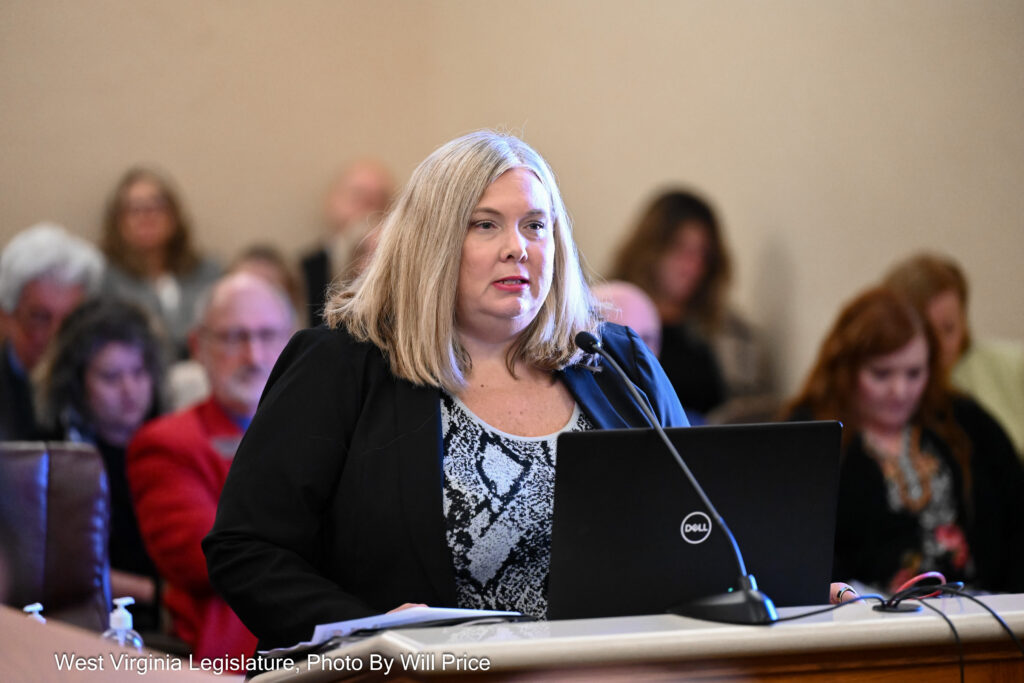West Virginia Medicaid, which covers more than a third of all West Virginians, is facing a budget deficit in 2024.
Cindy Beane, the state’s commissioner for the Bureau of Medical Services, presented an update on the Medicaid program during a Joint Committee Meeting on Government and Finance on Tuesday. She told lawmakers the health coverage program for approximately 36 percent of West Virginia residents is facing a budget deficit of $114 million.
Gov. Jim Justice commented on the potential budget deficit during his regular weekly briefing.
“But the net of the whole thing in regard to Medicaid is we have, we have a backup and a way to cure this problem,” Justice said. “And really, and truly to cure it with with being able to go to the feds and have them send significantly more dollars than they’re doing today by just moving a fee situation around which we can absolutely do.”
To fix the deficit, Beane suggested raising the tax Medicaid charges managed care organizations to a maximum of 6 percent.
“But I would tell you, if it ain’t broke, don’t fix it,” Justice said. “You know, and right now, what we’re doing is working and we want to just keep it going, we’ll keep watching.”
Medicaid accounts for the largest portion of the Department of Health and Human Resources’s budget, according to Beane. State and federal government funds contribute to the program.
According to Beane’s presentation, in the current fiscal year (FY24), the state government paid more than $1 billion in expenditures for Medicaid and the federal government paid more than $4 billion.
Fiscal year 2025 begins in July of 2024 and the agency is projecting the Medicaid program to cost the state and federal government more than $5.2 billion.
During the COVID-19 Public Health Emergency, the federal government provided resources for expanded Medicaid and assistance programs.
This allowed Medicaid to not remove people from the program during the pandemic, causing enrollment numbers to grow from 504,760 people in March 2020, to 667,471 at its highest during COVID-19, Beane said.
“The federal government opened up the Medicaid rolls to many more people but in doing that they provided a supplement payment,” Brian Abraham, Justice’s chief of staff said. “Well, that supplement is starting to come due.”
Beginning in April, the state started the “unwinding” process of removing people from the program who no longer qualified and those who did not fill out paperwork to renew their coverage.
According to Beane, eight months into the process the state’s Medicaid program is down to an enrollment of 539,250.
Abraham said past administrations took money from rainy-day funds and other similar sources to fill any Medicaid fund deficit opting for federal reimbursement.
“We came up with a strategic plan,” Abraham said. “We have medical care organizations that provide services to DHHR. For these Medicaid services, there’s a fee that they get, and it’s on top of what they normally pay, we have the ability to raise that fee on their behalf, we pay them that money, and then we ask the federal government for reimbursement of which for every dollar we spend of that fee, we get back approximately 75 cents. So we think that has the opportunity to nearly or if not completely close that deficit.”
Abraham said the Justice administration’s managing of their affairs is what has allowed for a continuous flat budget with a surplus.
“We also have the ability to make other strategic decisions which will influence the budget, I will say this back to the budget generally, by what Gov. Justice has done throughout his time as governor, and that is being disciplined and keeping a relatively flat budget, we can manage these kinds of situations,” Abraham said.




















